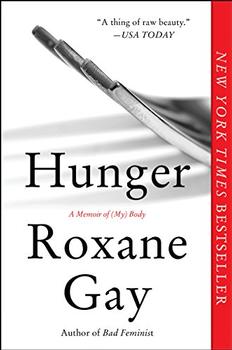Summary | Excerpt | Reviews | Beyond the book | Read-Alikes | Genres & Themes | Author Bio

Fear, Hope, Dread, and the Search for Peace of Mind
by Scott StosselWhen I first heard about Scott Stossel's book, My Age of Anxiety: Fear, Hope, Dread, and the Search for Peace of Mind, I was immediately interested. I wanted to know how a person with such a high-powered, presumably stressful job - he is a journalist and editor of The Atlantic magazine - learned to cope with so much anxiety. And on a more personal level, I was hoping to take away a few nuggets of understanding that might help me navigate the fear-induced neuroses in my own life. Once I started reading, however, I quickly learned that this book is very different (and much more) than what I was expecting.
The title, My Age of Anxiety, is very appropriate; Stossel focuses on his own life and experiences throughout the book, telling stories of painful (and sometimes humorous) episodes of his suffering, posing thoughtful questions about how or why he came to be this way, and sharing pages and pages of research on the evolution of psychological thought surrounding anxiety and its treatment (The bibliography at the end of the book is truly impressive). Stossel's preoccupation with himself gives the book a narcissistic tone, but forgivably so. He's still very self-aware and realizes that this is the only way he knows to talk about and understand his anxiety. (It's "a preoccupation, you may have noticed, that I have yet to overcome," says Stossel.)
His writing is personal and extraordinarily brave. He exposes his struggle to function in daily life, recounts difficult therapy sessions, admits to gut-wrenching anxiety that caused him to soil himself, remembers walking out in the middle of his own speeches, and quietly mentions moments of stress and abuse he suffered as a child. Stossel's ability to unabashedly share his experiences creates a strong sense of humanity in his book, and his first-person narrative is very effective in de-stigmatizing his anxiety - he is clearly dealing with multiple, severe and debilitating phobias, not just your everyday anxiety - and readers will undoubtedly feel empathetic toward the author.
Stossel's research is not overly academic, though sometimes he gets sidetracked with details and long footnotes, and he is very successful in presenting the material in a relatable way. He acknowledges that, "I am not a doctor, a psychologist, a sociologist, or a historian of science - any one of whom would bring more scholarly authority to a treatise on anxiety than I do." Instead, he uses what he has learned from literature, scientific research, popular culture, and his own lifetime of anxiety, which makes for a more informal, engaging read. He looks at the differences between healthy anxiety and anxiety disorder; whether anxiety is a chemical, social, cultural, or emotional phenomenon (or a combination of the four); how the rise of insurance companies, pharmaceutical companies, and the Diagnostic and Statistical Manual of Mental Disorders (DSM) changed how we diagnose anxiety; and whether drugs are friend or foe. (Do drugs help manage the anxiety or do they prevent a person from facing their anxieties and thereby healing themselves?) His analysis respects the complex nature of these questions, and he never claims to have an answer. He believes that, "while in many places these competing theoretical perspectives conflict with one another, they are not mutually exclusive. Often they overlap."
Being invited into such a personal space both creates and satisfies a voyeuristic curiosity in the reader. For example, I found it most interesting to learn about his relationship with his mother – that she physically dressed him until he was 9 or 10, picked out his clothes until he was 15, and ran his daily bath into his teenage years – however, surprisingly, he doesn't look too closely at the effects of her overbearing nature. I also found that his keen ability to create an empathetic response from the reader started to stress me out. Reading almost 400 pages about a person who is absolutely sick with worry, fear, stress, and anxiety all the time can be tiring despite his good sense of humor and inviting writing style.
Overall, I recommend My Age of Anxiety to people interested in a case study on an interesting person and the history of severe anxiety, rather than to people searching for answers. Stossel's writing is clear, and his vulnerability is captivating. Stossel notes that "Maybe finishing this book and publishing it - and, yes, admitting my shame and fear to the world - will be empowering and anxiety reducing," and for his sake, I hope it is.
![]() This review was originally published in The BookBrowse Review in February 2014, and has been updated for the
February 2015 edition.
Click here to go to this issue.
This review was originally published in The BookBrowse Review in February 2014, and has been updated for the
February 2015 edition.
Click here to go to this issue.

If you liked My Age of Anxiety, try these:

by Kurt Eichenwald
Published 2019
The compelling story of an acclaimed journalist and New York Times bestselling author's ongoing struggle with epilepsy—his torturous decision to keep his condition a secret to avoid discrimination, and his ensuing decades-long battle to not only survive, but to thrive.

by Roxane Gay
Published 2018
From the New York Times best-selling author of Bad Feminist, a searingly honest memoir of food, weight, self-image, and learning how to feed your hunger while taking care of yourself.
Your guide toexceptional books
BookBrowse seeks out and recommends the best in contemporary fiction and nonfiction—books that not only engage and entertain but also deepen our understanding of ourselves and the world around us.